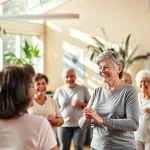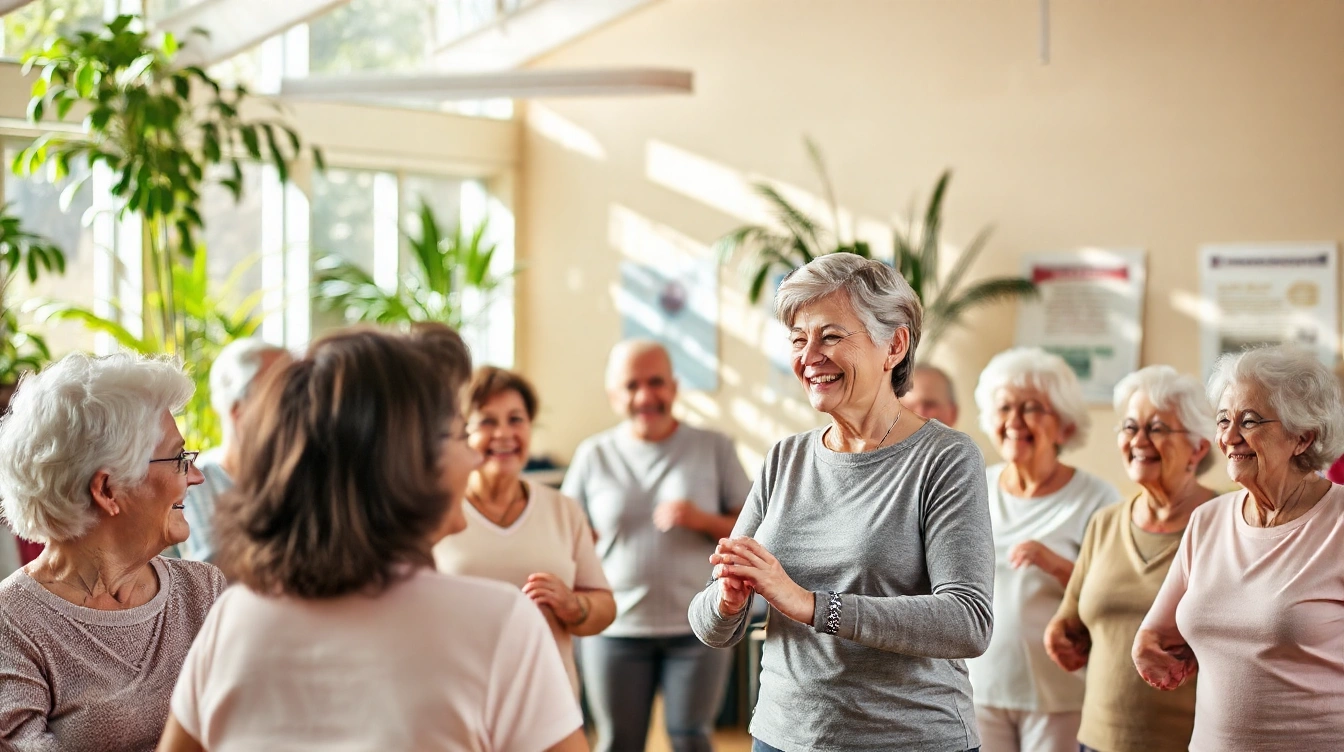Health Benefits for UK Seniors Through Community Programs
Community programs provide significant senior health advantages for UK seniors, addressing both physical and mental well-being. Participation often leads to noticeable improvements in physical strength, mobility, and overall fitness. Activities tailored to older adults—including gentle exercise classes, walking groups, or gardening projects—encourage regular movement, which helps manage chronic conditions such as arthritis or heart disease.
Beyond physical improvements, these programs contribute deeply to mental and emotional health. Many UK seniors report reductions in anxiety and depression symptoms, gained through engaging social environments and purposeful activities. The positive impact on health and wellbeing is reinforced by the sense of belonging and routine these programs create.
Also to discover : Harnessing technology to enhance senior mental wellness: innovative solutions unveiled
One of the key community program benefits is enhanced social connectedness. Older adults frequently face social isolation, but group activities foster new friendships, reducing feelings of loneliness and promoting emotional resilience. This network of support can significantly improve quality of life.
By engaging regularly, UK seniors experience a holistic boost to their health and wellbeing, combining physical health improvements, mental clarity, and social enrichment.
Also to discover : Unlocking senior health: cutting-edge solutions to enhance well-being in the uk
Types of Community Programs Available to Seniors in the UK
Community activities for seniors in the UK offer diverse options designed to enhance well-being and social connection. One popular type of senior program is fitness and wellness classes. These typically include gentle yoga, tai chi, and low-impact aerobics aimed at improving mobility and balance while promoting overall health. Such classes are often adapted to accommodate varying fitness levels, ensuring accessibility for all elderly participants.
Social and recreational clubs tailored for seniors play a vital role in combating loneliness. They provide a space for shared interests, including book clubs, gardening groups, and arts and crafts sessions. These clubs not only encourage social interaction but also help seniors develop new hobbies and maintain cognitive stimulation.
Educational and volunteering opportunities are also significant cornerstones of local support for elderly people. Workshops, computer literacy courses, and volunteer roles allow seniors to stay intellectually engaged and contribute meaningfully to their community. These programs foster a sense of purpose and belonging, which is crucial for mental health. Recognising the variety of community activities for seniors can help families and caregivers select suitable options that promote active, fulfilling lifestyles.
Real-Life Examples and Case Studies Demonstrating Impact
Small-scale senior program success stories provide compelling evidence of positive outcomes. For example, many elderly participants report notable improvements in both physical mobility and mental well-being following involvement in targeted health initiatives. These individual testimonials often highlight increased energy levels, reduced feelings of isolation, and enhanced mood.
A significant health program case study in a UK elderly community group demonstrated measurable results in improving participants’ cardiovascular health and cognitive function. Over a 12-month period, participants engaged in tailored exercise and social activities, leading to a 20% decrease in reported chronic pain and a marked improvement in social connectedness. This group also showed increased adherence to health advice, underscoring the program’s success in behavior change.
Different environments across the UK, including both urban and rural settings, reveal diverse but consistent benefits. Rural senior communities particularly benefit from programs offering accessible transportation to group activities, while urban groups thrive on diverse social engagement opportunities. These UK elderly community impact examples prove that well-structured health programs can significantly enhance quality of life for seniors across different locations and lifestyles.
Research and Evidence Supporting Senior Community Programs
Recent studies on elderly wellbeing UK reveal strong links between community engagement and improved health outcomes for seniors. Evidence-based senior health research consistently shows that participation in social and physical activities reduces risks of chronic illnesses such as heart disease, arthritis, and depression. For example, government health data highlights that seniors involved in community programs experience fewer hospital admissions and maintain better mobility over time.
Academic findings confirm that regular involvement promotes mental clarity, emotional stability, and a greater sense of purpose, key factors in sustaining quality of life. Research also emphasizes the importance of tailored activities that cater to different abilities and health conditions among the elderly.
Long-term community health research points to lasting positive trends: seniors engaged in these programs often report reduced feelings of isolation and increased overall wellbeing. These outcomes are especially significant within UK contexts, where aging populations require sustainable health strategies. Prioritizing evidence-based senior health programs in community planning can effectively enhance aging experiences and reduce healthcare burdens.
Guidance for Accessing Community Programs in the UK
Finding senior programs and elderly support in the UK can feel daunting, but the process is straightforward with the right approach. To join local community initiatives, start by identifying your nearest community centre or local council website; many provide detailed listings of available programs. Registration often involves a simple application form either online or in person. For specific needs, adult education centres or libraries frequently host tailored activities.
Caregivers seeking support have multiple resources available. Contacting your local Age UK branch can connect you to bespoke caregiver resources and programs designed to support both seniors and their carers. Health and social care teams also provide advice and can facilitate access to appropriate groups, including those catering to dementia or mobility challenges.
Additionally, online portals like the NHS community directory enable easy searching for nearby programs and support services by postcode. Combining these options ensures you can find and join community programs suited to your or your loved one’s needs efficiently and confidently. Always ask for assistance if the initial information seems overwhelming, as local councils and charities are eager to guide you through the process.







